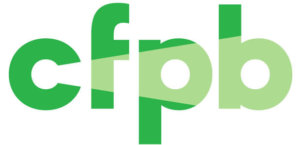Dec. 16: CFPB Updates This Week
 CFPB & FHFA news release announcing the publication of updated loan-level data for public use collected through the National Survey of Mortgage Originations
CFPB & FHFA news release announcing the publication of updated loan-level data for public use collected through the National Survey of Mortgage Originations
The Consumer Financial Protection Bureau (CFPB) and the Federal Housing Finance Agency (FHFA) today published updated loan-level data for public use collected through the National Survey of Mortgage Originations (NSMO). The data also provide updated mortgage performance and credit information for a nationally representative sample of mortgage borrowers from 2013 to 2020.
Key highlights from the updated data are:
- The COVID-19 pandemic shaped the mortgage borrower experience in 2020. A higher share of borrowers reported that a paperless online mortgage process was important to them in 2020 (48 percent) than in 2019 (42 percent). More borrowers reported that the mortgage closing did not occur as originally scheduled in 2020 (21 percent) than in 2019 (17 percent).
- Mortgage borrowers, particularly those refinancing a loan, responded to the low-interest rates in 2020. The share of borrowers who rated themselves very familiar with available interest rates increased from 55 percent in 2019 to 69 percent in 2020. The share who reported being very satisfied that they got the lowest interest rate for which they could qualify increased from 67 percent in 2019 to 75 percent in 2020.
- Borrowers who refinanced in 2020 were more well off financially than those who refinanced in 2019:
- A higher share reported their household income was $175,000 or higher in 2020 (29 percent) than in 2019 (20 percent).
- Similarly, a higher share indicated that they owned stocks, bonds, or mutual funds in 2020 (53 percent) than in 2019 (43 percent).
- Relatedly, 76 percent of borrowers who refinanced were not at all concerned about qualifying for a mortgage in 2020, up from 66 percent in 2019.
 Watch The Consumer Financial Protection Bureau’s Semi-Annual Report to Congress
Watch The Consumer Financial Protection Bureau’s Semi-Annual Report to Congress
December 15, 2022
CFPB Amendment to the HMDA Rule
Home Mortgage Disclosure (Regulation C); Judicial Vacatur of Coverage Threshold for Closed-End Mortgage Loans
In April 2020, the Consumer Financial Protection Bureau issued a final rule (2020 HMDA Rule) to amend Regulation C to increase the threshold for reporting data about closed-end mortgage loans. The 2020 HMDA Rule increased the closed-end mortgage loan reporting threshold from 25 loans to 100 loans in each of the two preceding calendar years, effective July 1, 2020.
On September 23, 2022, the United States District Court for the District of Columbia vacated the 2020 HMDA Rule as to the increased loan-volume reporting threshold for closed-end mortgage loans. As a result of the September 23, 2022 order, the threshold for reporting data about closed-end mortgage loans is 25, the threshold established by the 2015 HMDA Rule. Accordingly, this technical amendment updates the Code of Federal Regulations to reflect the closed-end mortgage loan reporting threshold of 25 mortgage loans in each of the two preceding calendar years.
You can access technical amendment here: www.consumerfinance.gov/rules-policy/final-rules/hmda-reg-c-judicial-vacatur-of-coverage-threshold-for-closed-end-mortgage-loans/.
The CFPB is proposing:
- Covered nonbanks would report certain agency and court orders connected to consumer financial products and services: Generally, nonbanks would have to report final agency and court orders and judgments, including consent and stipulated orders, brought under federal consumer financial protection laws or state laws regarding unfair, deceptive, or abusive acts or practices.
- Larger supervised nonbanks would designate a senior executive to attest regarding the firm’s compliance with covered orders: Larger nonbanks that are supervised by the CFPB would be required to designate a senior executive to submit an annual supervisory written statement attesting to the steps taken to oversee the activities subject to the order and whether the executive knows of any violations of, or other instances of noncompliance with, the covered order.
 Prepared Statement of Director Rohit Chopra before the House Committee on Financial Services
Prepared Statement of Director Rohit Chopra before the House Committee on Financial Services
The CFPB’s market monitoring and supervision of financial institutions provides one lens into the state of the economy. Consumer demand has rebounded as our country transitions out of pandemic conditions. While the labor market remains strong, household debt has increased rapidly. The rise in household payment burdens from auto loans and credit cards has been particularly pronounced, given rising interest rates, the cost of vehicles, and the impact of inflation on other goods and services in the economy.
As consumers continue to navigate the economic impacts and ripple effects of the pandemic, their financial patterns have adapted and responded to changing conditions – as have the companies that serve them. For example, the CFPB has observed a notable increase in use of Buy Now, Pay Later products over the past few years. As interest rates on credit cards increase – and correspondingly, outstanding balances – a low- or no-interest Buy Now, Pay Later product that spreads the cost of goods over four payments can be particularly appealing. The CFPB’s recent study on Buy Now, Pay Later noted a significant increase in use of these products to fund essential goods and services. The CFPB is working to ensure that Buy Now, Pay Later lenders adhere to the same protocols and protections as other similar financial products to avoid regulatory arbitrage and to ensure a consistent level of consumer protection.